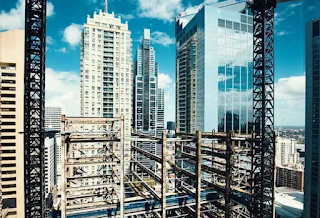Investing in commercial property can be a daunting process, and with so many funding options in Australia, it can be hard to know where to begin. If you really want to make this new venture work for you, it’s important you do it the right way. Using an SMSF (self-managed superfund) to buy a premises offers you lots of benefits, here’s why:
No landlords
It can be disheartening to pay out a significant amount of money each month to a third party. However, with an SMSF, you can effectively pay rent to yourself, as your funds will go towards your super fund and not into another person’s pocket, as is the case when using private lenders. This means you’ll be able to grow your investment more quickly. This rent can also be claimed as an expense when filling out tax returns as per normal commercial regulations. Within the SMSF, the rent is subjected to just a 15% tax, but deductibles on the lease are capped at 46.5%.
Additional tax benefits
If your property is held by the SMSF for over a year, when it’s sold, capital gains are only taxed at 10%. If you’re receiving a pension when you’re selling your property in the future, you won’t have to pay capital gains tax on the sale.
What’s the process of buying a commercial property using SMSF?
You’ll need to have the commercial property you wish to purchase valued by someone who is independent of your SMSF as well as qualified to do so. The selling price of the premises must also reflect the others currently on the market, as it’s important for the lease to be competitive in a commercial sense. Once purchased, rent payments will have to be made on time, despite being paid back into the SMSF, and will always need to meet the full amount. It’s important that the premises is used only for commercial purposes and is valued regularly following the sale. Ultimately, the property must continually offer benefits to all members of the SMSF for it to comply with its original purpose.
Are there any risks to consider?
As with any type of investment, there’s always potential downfalls. Because the property will be limited to commercial use, it may be more difficult to find a buyer for this market should it be more viable to sell the property than maintain it. Owners could also struggle with covering the costs of maintenance and insurance, which they will be liable for, as these can quickly mount up and put a strain on their finances.
However, one of the main things to consider is whether the investment will offer long term returns. Although it’s ideal for those wishing to run a business, the property may struggle to meet the requirements it set out to in the beginning. A large part of using an SMSF to invest in commercial property is the retirement gains members can benefit from, so if large amounts of the fund are focussed in this single asset, it can be a difficult goal to realise.

